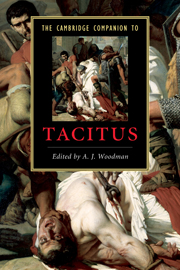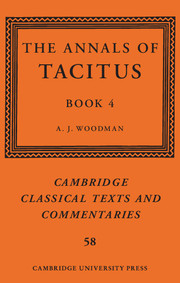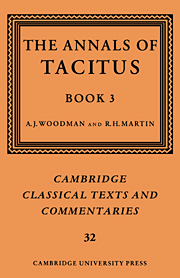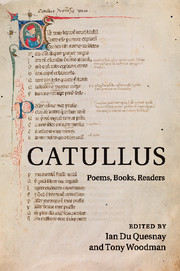The Cambridge Companion to Tacitus
Tacitus is universally recognised as ancient Rome's greatest writer of history, and his account of the Roman Empire in the first century AD has been fundamental in shaping the modern perception of Rome and its emperors. This Companion provides a new, up-to-date and authoritative assessment of his work and influence which will be invaluable for students and non-specialists as well as of interest to established scholars in the field. First situating Tacitus within the tradition of Roman historical writing and his own contemporary society, it goes on to analyse each of his individual works and then discuss key topics such as his distinctive authorial voice and his views of history and freedom. It ends by tracing Tacitus' reception, beginning with the transition from manuscript to printed editions, describing his influence on political thought in early modern Europe, and concluding with his significance in the twentieth century.
- Provides an extensive survey of the works of Tacitus, the greatest historian of ancient Rome
- Edited by the leading Tacitean scholar of our time, with a strong team of recognized experts
- Includes a section on reception, and Tacitus' influence on modern political thought
Product details
January 2010Hardback
9780521874601
386 pages
235 × 160 × 23 mm
0.74kg
Available
Table of Contents
- Introduction A. J. Woodman
- Contexts:
- 1. From the Annalists to the Annales: Latin historiography before Tacitus A. M. Gowing
- 2. Tacitus and the contemporary scene A. J. Woodman
- Texts:
- 3. The Agricola A. R. Birley
- 4. The Germania as literary text Richard F. Thomas
- 5. The faces of eloquence: the Dialogus de Oratoribus Sander M. Goldberg
- 6. Fission and fusion: shifting Roman identities in the Histories Rhiannon Ash
- 7. The Tiberian Hexad Christina Shuttleworth Kraus
- 8. Hamlet without the Prince? The Claudian Annals S. J. V. Malloch
- 9. 'Is dying so very terrible?': the Neronian Annals E. E. Keitel
- Topics:
- 10. Tacitus' personal voice Christopher Pelling
- 11. Tacitus as a historian Miriam T. Griffin
- 12. Res Olim Dissociabiles: emperors, senators, and liberty S. P. Oakley
- 13. Style and language S. P. Oakley
- 14. Speeches in the Histories D. S. Levene
- 15. Warfare in the Annals D. S. Levene
- Transmission:
- 16. From manuscript to print R. H. Martin
- 17. Tacitus and political thought in early modern Europe, c.1530–c.1640 Alexandra Gajda
- 18. Gibbon and Tacitus Paul Cartledge
- 19. A dangerous book: the reception of the Germania C. B. Krebs
- 20. Tacitus and the twentieth-century novel Martha Malamud
- 21. Tacitus' Syme Mark Toher
- Chronological table.






